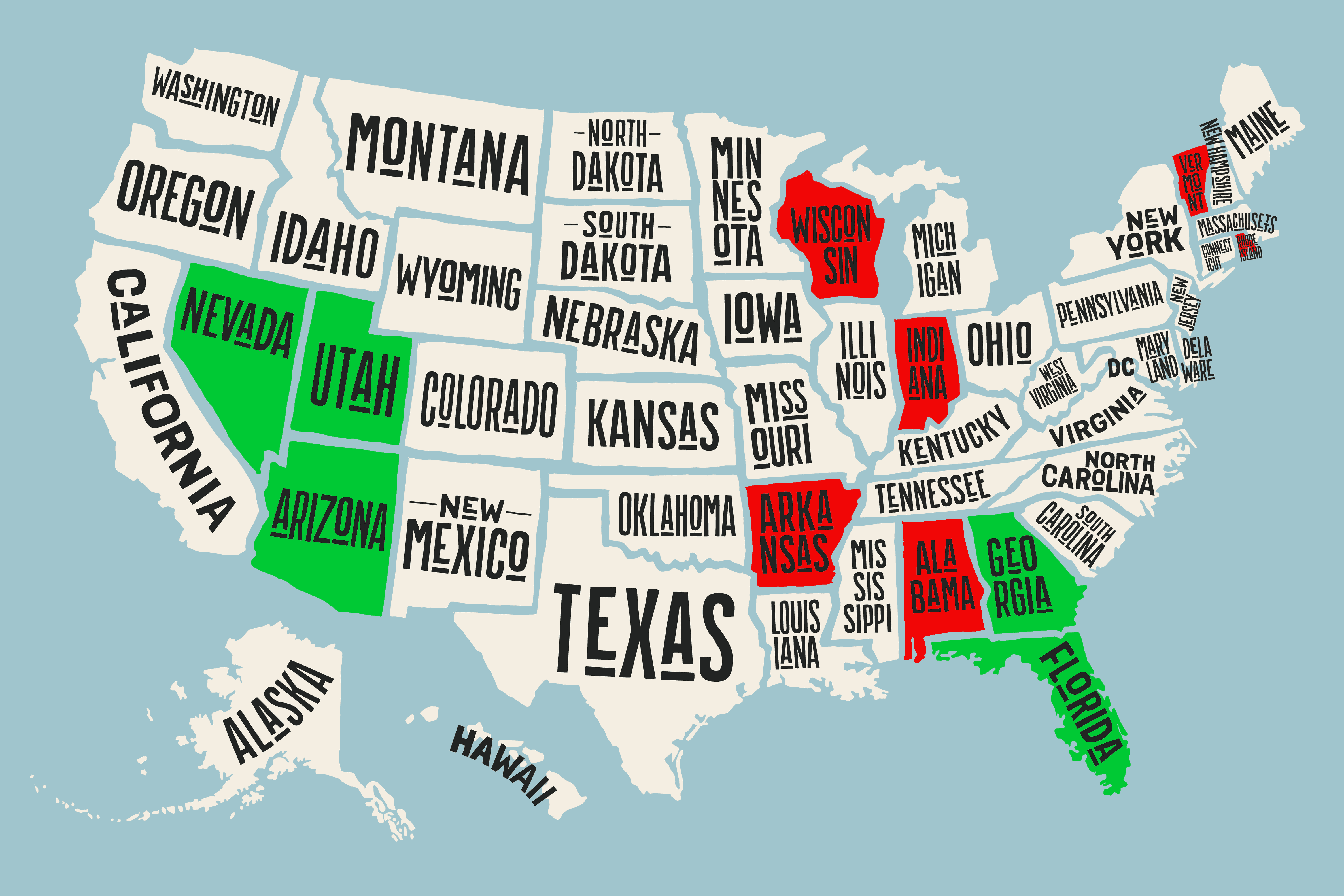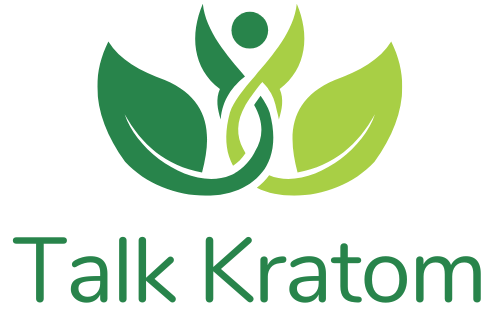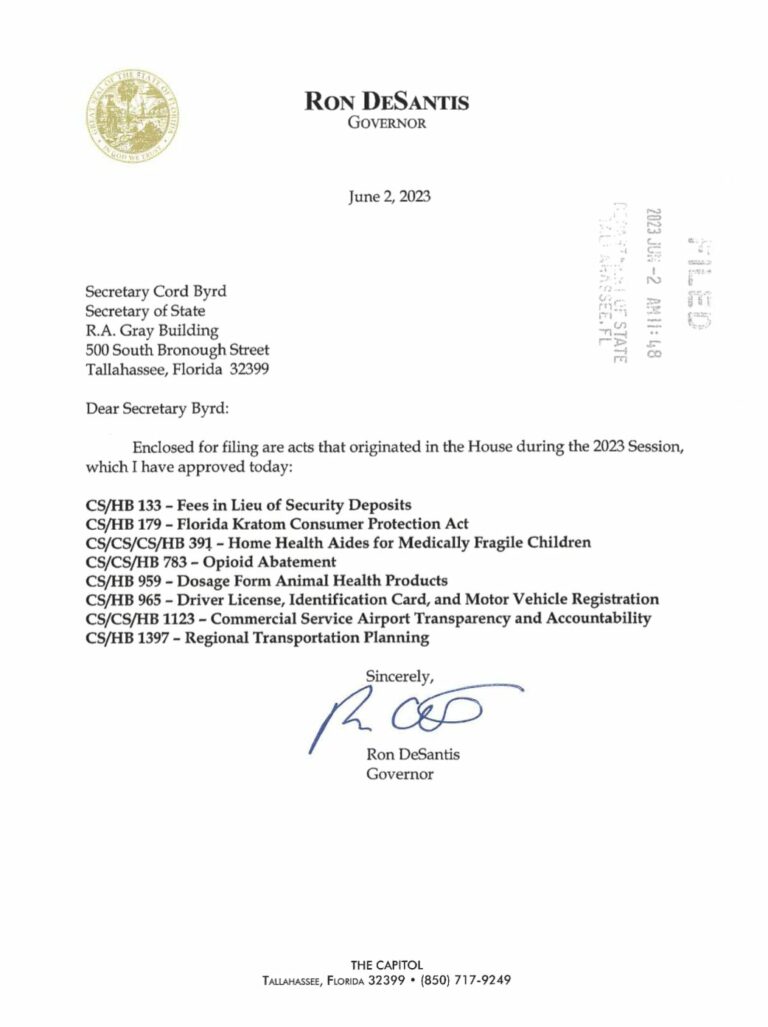Is Kratom Legal? Kratom Laws By State

Green States: Kratom is legal and have passed the Kratom Consumer Protection Act.
Red States: Kratom is banned.
Other: Kratom is legal in all other states but may be subject to local municipality regulation.
You’ve seen kratom online, in stores, and maybe even local markets but is kratom legal? Read our guide to get the facts.
Kratom can be found almost anywhere from online, in health food stores, even smoke shops across the United States. Although kratom has widespread availability, some question if the plant is legal in their area. We’ve put together a comprehensive guide to kratom legality by state to help eliminate the guesswork.
What is Kratom?
Kratom is a product derived from a plant grown in Southeast Asia. Formally known as Mitragyna Speciosa, the plant leaves can be chewed, steeped in Kratom tea, or ingested in various ways to feel its psychoactive effects. People have used the powdery green substance as a pain reliever and mood enhancer since the 19th century. Kratom has many alternative medicine advocates who have fought for its legality in the US. One of the biggest movements in favor or legalizing the plant and protecting consumers is the Kratom Consumer Protection Act which protects the legality of Kratom in the state it’s passed in while regulators set Kratom regulatory requirements. This regulation is a great step in increasing overall product quality in the space by facilitating the elimination of synthetic additives and other, potentially dangerous ingredients. As of November 2022, four states have passed the KCPA bill.
is Kratom Legal in my State?
Kratom is technically legal at the federal level however some states and local counties have chosen to ban the plant making it illegal to posses, sell, or grow. Other states have imposed restrictions such as age.
States where Kratom is illegal:
- Alabama
- Arkansas
- Indiana
- Rhode Island
- Vermont
- Wisconsin
States Where Kratom is Legal But Have Municipality Laws:

States Where Kratom is Legal
Here’s our breakdown of states where kratom is legal with no current municipality restrictions.
- Alaska – The plant is legal without restrictions.
- Arizona – Kratom is both legalized and regulated. Arizona passed the Kratom Consumer Protection Act in April of 2019.
- Connecticut – The plant legal with a regulation bill pending.
- Delaware – Kratom use is permitted under federal law.
- Georgia – Kratom use is lawful and regulated. The State also was the 3rd state to pass the Kratom Consumer Protection Act.
- Hawaii – Kratom is currently permitted however there is a bill pending to ban Kratom.
- Idaho – Legal.
- Iowa – Legal.
- Kansas – Kratom is permitted and the state is reviewing the Kratom Consumer Protection Act.
- Kentucky – Legal.
- Maine – Legal.
- Maryland – Legal.
- Mississippi – Legal.
- Missouri – Kratom use is currently lawful and the State is reviewing the Kratom Consumer Protection Act.
- Montana – Legal.
- Nebraska – Legal.
- Nevada – Kratom both legalized and regulated by the Kratom Consumer Protection Act.
- New Jersey – Legal.
- New Mexico – Legal.
- New York – Legal.
- North Dakota – Legal.
- Ohio – Legal.
- Oklahoma – Legal.
- Pennsylvania – Legal.
- South Carolina – Legal.
- Texas – Legal.
- Utah – Kratom both legalized and regulated by the Kratom Consumer Protection Act.
- Virginia – Legal.
- Washington – Legal.
- Wyoming – Legal.
Washington DC lifted their ban on Kratom in 2019.
What is Kratom’s Future Legal Outlook?
There has been limited research available on the plant. Policy makers have previously relied on statements from the FDA to make decisions. Recently the National Institute on Drug Abuse awarded research grants to the US College of Pharmacy to study kratom alkaloid contents. Preliminary results from this study are in favor of Kratom.
Curious about kratom laws in other countries? Find out which ones in our Kratom Legality by Country post.
Why isn’t Kratom Legal Everywhere?
Kratom is recognized as an addictive drug with potential side effects. Although the plant is not controlled by the FDA, the DEA has listed it as a “drug of concern” in June of 2020. There are currently no FDA approved uses for kratom and it is currently being reviewed by the FDA. Although the plant may have a bad reputation, researchers at the University of Rochester Medical Center and the University of British Columbia have released a study that points to potential benefits of Kratom. According to the study, not only is kratom a potentially safer substitute for opioids, the plant also has the potential to reduce negative mood. The study represents the largest systematic review of scientific literature on kratom use and mental health.
There is a lot of confusing information about kratom in the media that makes it difficult for clinicians and the public to make informed choices
Marc T. Swogger, Ph.D., associate professor in URMC’s Department of Psychiatry


